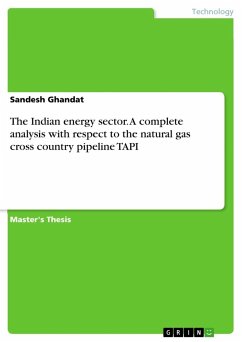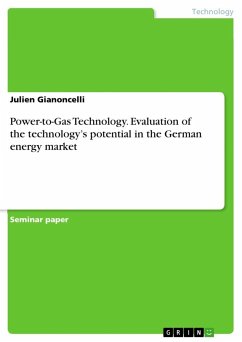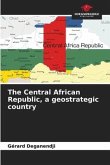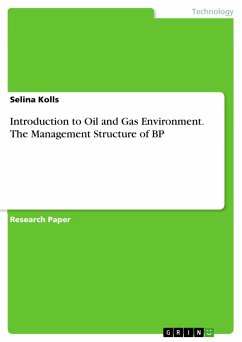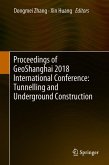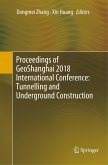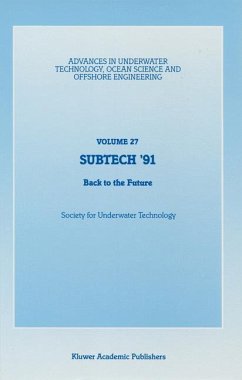Master's Thesis from the year 2016 in the subject Energy Sciences, grade: 8.5, University of Petroleum and Energy Studies, course: MBA in oil and gas management, language: English, abstract: This paper examines the Indian energy sector with special focus on the TAPI pipeline. The distance from major fossil fuel-rich countries to Indian borders are not more than 1000 to 2000 km either by sea or land route. The best possible mode for importing natural gas is the trans-national pipelines from Turkmenistan, Myanmar or Iran. Turkmenistan, Afghanistan, Pakistan and India Pipeline - the "TAPI Pipeline" is a 1735 km long land pipeline travelling through these countries.This pipeline will have an annual discharge capacity of 33BCM and will play a crucial role for domestic demand and supply. The research objective of this thesis is to analyze different actors in risk, their role in the risks and their possible long term impacts. These risks are categorized as security, price, geopolitics, environment, legal, economical, production and demand-supply. The study develops some scenarios on the basis of changing circumstances, and examines some pertinent issues regarding the pipeline's technical feasibility.
Hinweis: Dieser Artikel kann nur an eine deutsche Lieferadresse ausgeliefert werden.
Hinweis: Dieser Artikel kann nur an eine deutsche Lieferadresse ausgeliefert werden.

